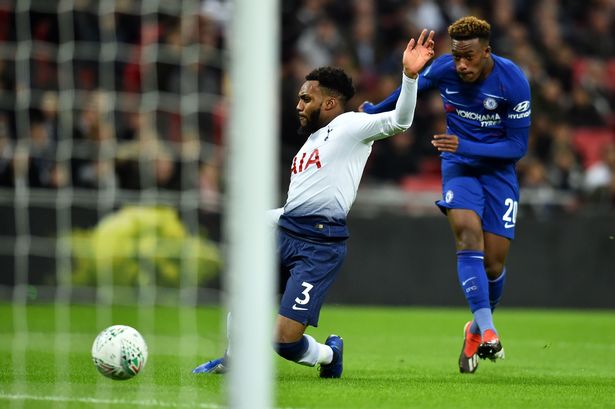For years people have been critical of Chelsea for the way the scout and develop youth. Typically when the club buys a younger prospect, they send them out on loan for a number of years hoping that they flourish and then try to fit them in the first team. The same thing happens to players that graduate from their youth academy.
This strategy of developing players will have to change. It has been reported that FIFA will put a cap on loaned players, limiting clubs to a maximum of eight players that they can send out season.
#FIFA finally putting a cap on loaned out players is good news. Germany’s @SPORTBILD are reporting that in future clubs will be limited to loaning out just eight players.
— Manuel Veth (@ManuelVeth) September 13, 2018
Recent coverage of this news makes it sound like this will only effect Chelsea who have 40 players out on loan. But they are by far not the only club this will have an effect on.
Who Is Impacted By The Rule Change?
While what has been called ‘the loan culture’ hasn’t been as popular in La Liga and the Bundesliga, it has become standard in places such as the Premier League and Serie A.
The following charts show the number of loaned players in Serie A and in the Premier League:
Serie A
| Atalanta | 77 | Bologna | 25 | |||||
| Genoa | 43 | Fiorentina | 25 | |||||
| Sassuolo | 41 | Nápoli | 24 | |||||
| Juventus | 40 | Roma | 23 | |||||
| Torino | 40 | Cagliari | 22 | |||||
| Inter | 37 | Udinese | 19 | |||||
| Chievo | 33 | AC Milán | 18 | |||||
| Sampdoria | 31 | SPAL | 17 | |||||
| Parma | 30 | Lazio | 11 | |||||
| Empoli | 26 | Frosinone | 10 |
Premier League
| Chelsea | 40 |
| Manchester City | 27 |
| Wolverhampton | 26 |
| Liverpool | 16 |
| Manchester United | 9 |
| Arsenal | 7 |
| Tottenham | 5 |
This is far from just a problem Chelsea will have to deal with. Serie A bases most of their development system on loaning large numbers of players out. There will be rippling effects for player development of large clubs but also in the way the game is played.

Player Development
As stated above, Chelsea isn’t the only one that would be affected by this rule change. But we can use Chelsea as an example of the changes we will see.
Firstly, player development is going to take a drastic turn. Chelsea’s ‘loan army’ consists of 40 players. Some of these players are young talents like Charly Musonda at Vitesse and Tammy Abraham at Aston Villa. Other players are first teamers that wouldn’t get much playing time this season like Michy Batshuayi at Valencia and Tiemoue Bakayoko at AC Milan. Thirty-two of these players will have to either be sold or put on the reserves.
A combination of two things could happen here:
1) Chelsea could move away from having players like Batshuayi and Bakayoko loaned out. These are promising players that are a little older but don’t have as high of a ceiling as the young players that are loaned out. Instead, Chelsea could save their eight spots solely for young talents with high potentials. Selling on the majority of their current loaned army during the grace period by FIFA.
2) Chelsea could take advantage of buyback clauses. Instead of loaning players to develop further, clubs like Chelsea can sell players but attach a buyback clause for the transfer. That way if the player moves away for a few years and becomes someone that would fit into the first team, Chelsea would have the first right to buy them back.

Look to Germany
It seems like Germany is the place to be for young talents, specifically Borussia Dortmund. Dortmund is tied for Bayern for the most Bundesliga players loaned out at three but the league leaders still keep developing incredible talents. In the past few years, we have seen Ousmane Dembele ($120M to Barcelona), Christian Pulisic ($73M to Chelsea) and Jadon Sancho all find significant playing time and develop into incredible players.
Teams who have leaned heavily on the loan system will need to look toward German clubs on how to develop players during the post loan culture era. Being able to take a promising academy prospect and turn them into a productive first team player for a top league in the world is not only great for the club but can also provide an influx of money that can make any club much less dependent on rich ownership.
If this rule does come into effect, player development across Europe, especially in Serie A and in the Premier League will have to change dramatically.


